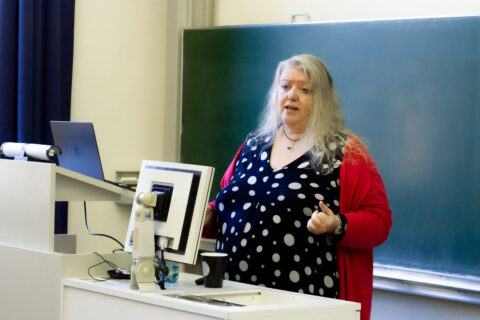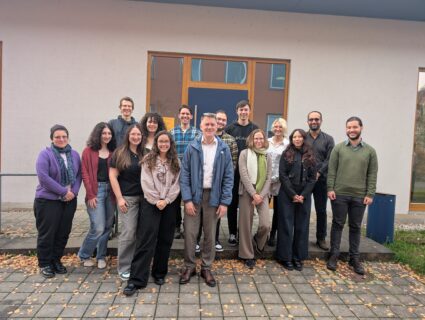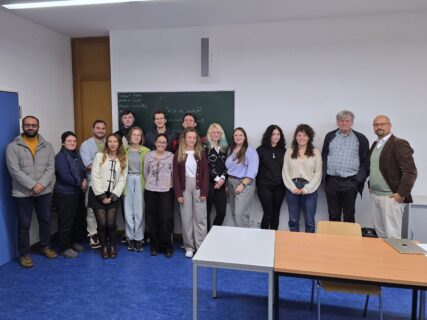DFG-funded RTG Dimensions of Constructional Space
Welcome to the DFG-Funded Research Training Group of the Dimensions of Constructional Space at FAU Erlangen-Nürnberg
Welcome to the Dimensions of Constructional Space, a Research Training Group dedicated to the investigation of linguistics within the theoretical framework of Construction Grammar.
Our group serves as a hub for a diverse array of PhD projects, each delving into distinct facets of Construction Grammar theory. Here is but an example of the objectives we seek to pursue by means of our work:
- Addressing central theoretical questions in Construction Grammar, such as criteria for identifying constructions and establishing links between them
- Applying the framework to various languages (English, German, Polish, Ukrainian, Persian, Arabic, Haitian Creole, Italian, Spanish and Chinese), different historical stages and language contact situations
- Testing predictions derived from Construction Grammar using a variety of methods, including traditional and ‘big data’ corpus methods, behavioural experiments and neuroimaging techniques
- Developing an open-access database for the academic community in the form of a research constructicon that brings together and interconnects constructional descriptions as well as experimental results obtained in the various research projects on individual constructions and particular types of constructions
Within this dynamic environment, we actively promote an interdisciplinary approach, encouraging the exchange of ideas through various initiatives and events. These include workshops, winter and summer schools, conferences, talks, and international exchange opportunities.
Construction Grammar and Constructional Space
The name Construction Grammar (CxG) designates a relatively new paradigm in linguistics which brings together different theories whose aim is to account for the development and the employment of speakers’ linguistic knowledge.
The fundamental principles embodied by the CxG approach are:
- Constructions as language primitives
- Usage-based approach
- Network model
Doctoral programme
The early-career researchers involved in the RTG will benefit from a structured research training program comprising a winter school, three bootcamps, and regular seminars and research group meetings as well as a variety of optional courses, international placement opportunities, and individual coaching. The qualification programme is designed to recruit high quality doctoral candidates and to provide them with a solid foundation in linguistic theory and research methods. Each doctoral candidate will have two supervisors from different disciplines or methodological approaches and one or two additional advisors (one of whom will normally be associated with a research group outside of Germany). Candidates will also gain experience working in an interdisciplinary context, acquire a variety of transferable skills and have opportunities to develop an extensive network of international contacts, all of which will prepare them for careers both within and outside of academia.




